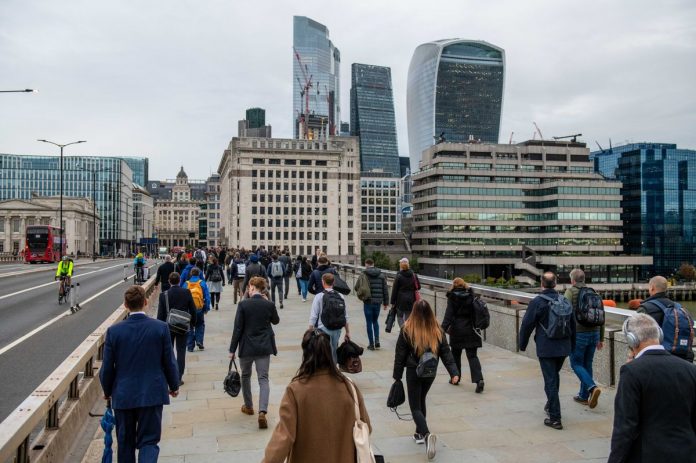Many managers at UK companies expect to dial back their pandemic-era embrace of remote work and flexible arrangements once Covid-19 recedes, dampening hopes among employees that many of the changes will endure. A survey of UK managers and human resources leaders, carried out for workplace management firm GoodShape by Ipsos, showed that more than two-thirds of respondents describe many initiatives currently in place — from working practices to mental-health provision — as “much needed”.
This is in sharp contrast to what they think will happen. Only 34% of managers and HR professionals believe that remote working initiatives will stay in place after the pandemic, the survey of more than 750 people showed, even though 66% support current policies.
Respondents also expect initiatives addressing poor mental health among employees to be rolled back, even though that was the leading cause of work absenteeism in the UK in 2021. These differences point to potential tensions as companies look past Covid-19 measures and infections plummet. Many companies now have employees who expect flexibility, and some workers have shown more willingness to quit their jobs instead of giving up working from home.
Gill Wetherill, head of people at financial advisory firm Progeny, said organisations should avoid allowing wellbeing to become “token” initiatives. “Employee wellbeing should always be a priority for businesses and not just within the context of a global pandemic,” she said.
Several studies have predicted that working from home is likely to continue after the pandemic, with data also showing that remote working rose in every major demographic group and industry over the last two years.
Bloomberg




















